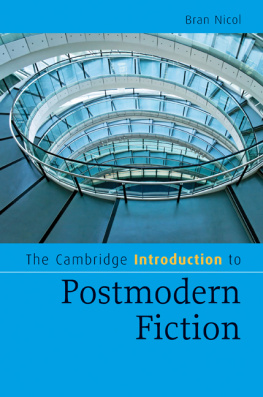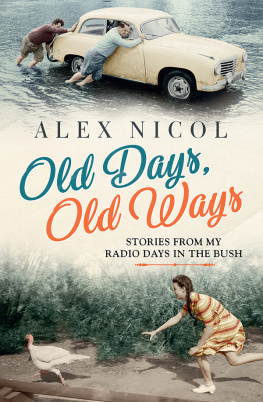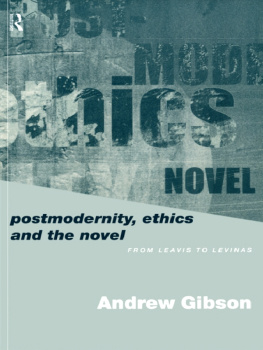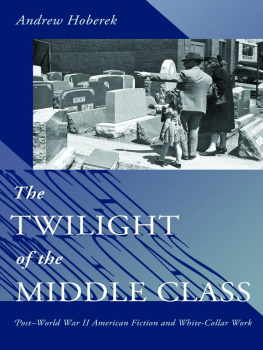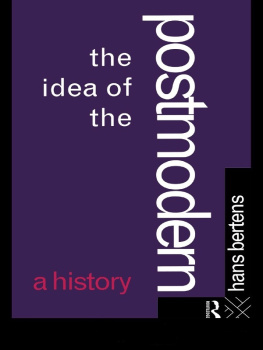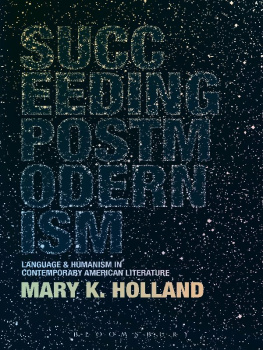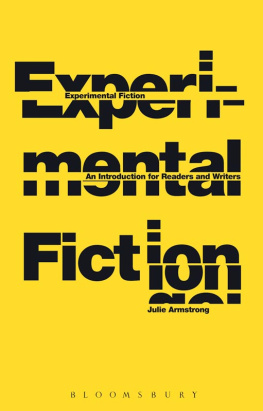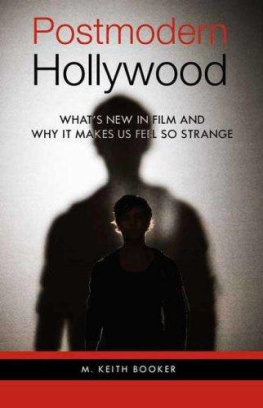
The Cambridge Introduction to Postmodern Fiction
Postmodern fiction presents its readers with a challenge: instead of enjoying it passively, they have to work to understand it, to question their own responses, and to examine their views about what fiction is. Yet accepting this challenge is what makes postmodern writing so pleasurable to read and rewarding to study.
Unlike most introductions to postmodernism and fiction, this book places the emphasis on literature rather than theory. It introduces the most prominent British and American novelists associated with postmodernism, from the pioneers, Beckett, Borges and Burroughs, to important post-war writers such as Pynchon, Carter, Atwood, Morrison, Gibson, Auster, DeLillo, and Ellis. Designed for students and clearly written, this Introduction explains the preoccupations, styles and techniques that unite postmodern authors.
BRAN NICOL is Reader in Modern and Contemporary Literature at the University of Portsmouth and has previously taught at Lancaster and Chichester. He has published on D. M. Thomas, Iris Murdoch, postmodernism and stalking in contemporary culture.
The Cambridge Introduction to Postmodern Fiction
BRAN NICOL
CAMBRIDGE UNIVERSITY PRESS
Cambridge, New York, Melbourne, Madrid, Cape Town, Singapore, So Paulo, Delhi, Dubai, Tokyo
Cambridge University Press
The Edinburgh Building, Cambridge CB2 8RU, UK
Published in the United States of America by Cambridge University Press, New York
www.cambridge.org
Information on this title: www.cambridge.org/9780521679572
Bran Nicol 2009
This publication is in copyright. Subject to statutory exception and to the provisions of relevant collective licensing agreements, no reproduction of any part may take place without the written permission of Cambridge University Press.
First published 2009
Printed in the United Kingdom at the University Press, Cambridge
A catalogue record for this publication is available from the British Library
ISBN 978-0-521-86157-1 Hardback
ISBN 978-0-521-67957-2 Paperback
Cambridge University Press has no responsibility for the persistence or accuracy of URLs for external or third-party internet websites referred to in this publication, and does not guarantee that any content on such websites is, or will remain, accurate or appropriate.
For Karen, Joe and Jamie
Acknowledgements
I would like to thank Ray Ryan of Cambridge University Press for his enthusiasm and patience, colleagues in the English department and in the Centre for European and International Studies Research at the University of Portsmouth for their support, and my wife and our boys for their laughter and love.
Preface: reading postmodern fiction
The commonest complaint about the narratives of Beckett or Burroughs is that they are hard to read, they are boring. But the charge of boredom is really hypocritical. There is, in a sense, no such thing as boredom. Boredom is only another name for a certain species of frustration. And the new languages which the interesting art of our time speaks are frustrating to the sensibilities of most educated people.
Susan Sontag, One Culture and the New Sensibility (1965)
Sometimes I suspect that good readers are even blacker and rarer swans than good writers.Reading, obviously, is an activity which comes after that of writing; it is more modest, more unobtrusive, more intellectual.
Jorge Luis Borges, Preface to A Universal History of Infamy (1935) (trans. Norman Thomas di Giovanni, 1972)
In an essay about postmodern fiction a student once declared that Beckett's writing doesn't go down easily. As I was the marker, I had to point out that this phrase was not exactly appropriate academic discourse. But I could also see her point. If reading Jane Austen is like having a nice Sunday lunch, and The Da Vinci Code is the equivalent of a McDonald's, then reading Beckett is, for some, like being asked to complete the Bushtucker Trial in the TV show Im A CelebrityGet Me Out Of Here .
Besides the parallel between literature and food, her statement implied a definition of fiction. A novel should be something accessible, easy to read. Literature should be digestible . But why is this? Why shouldn't literature be a challenge to the reader? Who said reading a novel has to be easy? After all, we accept more readily the fact that modern art, the kind we are confronted with in the Tate Modern or the Turner Prize, does not communicate straightforwardly, that we have to work to interpret it. Even poetry, part of the staple diet on university literature courses, is something we accept from the outset is not going to give its meaning over to us without a struggle.
If asked why they read, most people (including myself) would say that they read fiction for pleasure. It is hard, though, to determine exactly what the pleasure of reading a novel or a short story is. It may be the pleasure of escapism, of experiencing what it would be like to be another person, indulging one's fantasy-life, or exercizing the intellect. If asked why they choose to study literature at university, most students reply that it is because they enjoy reading fiction. (For the kind of reasons just mentioned.) But very quickly they realize that reading literature at university is not simply about enjoying reading. In fact, for some students, it turns out to be the exact opposite. Many students feel that the process of studying literature empties reading of the enjoyment that caused them to study literature in the first place. Why do we have to ask so many questions about a book? Can't we just accept that an author wrote something because he or she felt like it, or wanted to make money?
Postmodern fiction presents a challenge to the reader. This is true even though most of it is actually not as hard to comprehend as Beckett, and many of the authors labelled as postmodern (and examined in this book) are among the most popular, acclaimed, and, I think, enjoyable, writers in contemporary fiction: Thomas Pynchon, Angela Carter, Margaret Atwood, Toni Morrison, William Gibson, Paul Auster, Don DeLillo, Bret Easton Ellis.
But postmodern writing challenges us because it requires its reader to be an active co-creator of meaning rather than a passive consumer. More than this, it challenges its readers to interrogate the commonsense and commonplace assumptions about literature which prevail in our culture. Though it is a product of the latter half of the twentieth century, studying postmodern fiction can deepen our knowledge about literature on a wider scale. To read postmodern fiction is to be invited to ask: what is fiction? What does reading it involve? Why do we read? Why, for that matter, do novelists write? Why do they create innovative, experimental forms rather than just stick to traditional ones?
Postmodernisms
This book is an introduction to postmodern fiction, offering accounts of its various waves in a period stretching mainly from the 1950s to the 1990s and providing in-depth readings of texts which have been consistently associated with postmodernism by literary critics and theorists.
Though the term postmodern is still an important one in a number of academic disciplines and remains essential in the literary-studies lexicon, the topic of postmodernism is no longer hotly debated in academic journals and research monographs. Linda Hutcheon, one of the major theorists of postmodern , 165).

